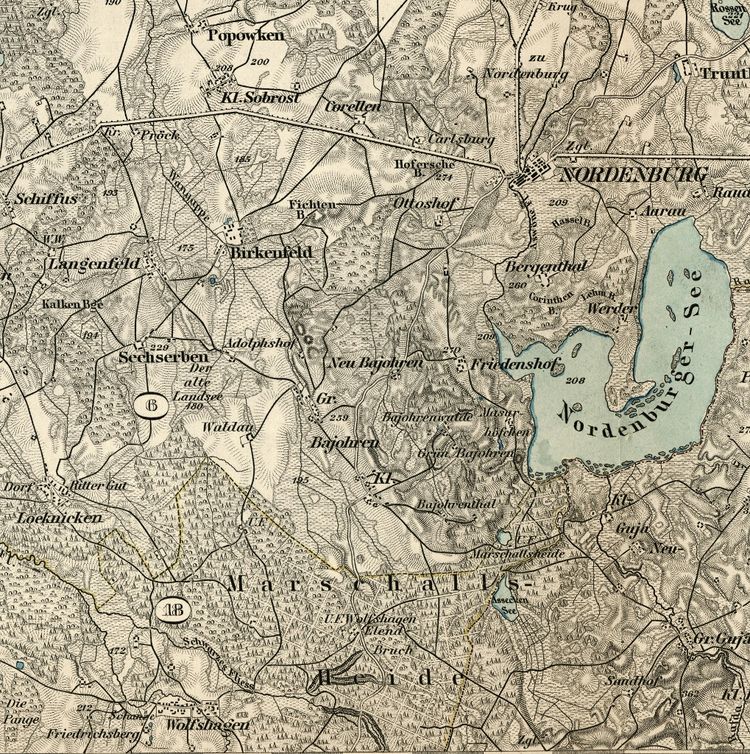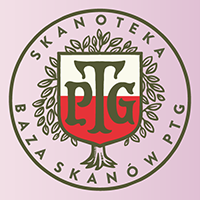This post is about collecting/exchanging all available information about families of the Evangelical Lutheran Parish in Rawa Mazowiecka (Rawa Maz.) in Poland in order to reconstruct, as far as possible, the important family relationships from the parish registers all(?) lost in January 1945, i.e. births, marriages and deaths from 1829 to 1945. Mainly from families living in Brzozów/Birkenfeld and Osada Dolna, today it is a district of Rawa Maz., as well as from other related families and villages belonging to Rawa Maz. Lutheran Parish.
I am a Pole with some German ancestry and need the above information for genealogical purposes only. If somebody knows two, three consecutive generations of families living in these places before 1945, would you please contact me.
I am doing this reconstruction with my 2nd cousin Tymon Derk and hope some others from USA and Germany will join in. We have already collected much of this data ourselves, as we are the great-great-grandsons of Jakob Müller *1822, and Marianna Hauser *1828, both in Brzozów. They were married in 1844 in Rawa Maz Ev. Church and lived in Osada Dolna. Their ancestors came from places in B-W such as Auerbach (Müller, Öchslein, Bishoff), Aurich (Hauser), Königsbach (Föller, Kammerer, Seefried, Kisselmann), Weissach (Kilpper, Essign) and Öfingen near Bad Dürrheim (Wölfle, Manger, Heppler, Irion, Glunz).
The names of the families we are interested in who lived in Brzozów (Birkenfeld), Sadykierz, Glina, Rzeczyca and Osada Dolna before 1945 are as follows:
Hauser; Welfle (or Wölfle); Roswag; Jetter; Pfau; Pfeifer; Rosner; Besler; Malin; Bandel; Schmidt; Lenc (or Lentz); Lange (or Lang); Wacker: Majer; Link; Scheuermann; Schlick; Trautz; Matern; Blechle; Bloch; Ruder; Roll; Müller; Weiss and Glitzner (or Glicner). The last one were Catholics, as the first one who came to Birkenfeld was Nicolas Glitzner * 1803 in Weinberg near Ansbach.
From Brzozów, the four Glitzners and one Lange were the only families not to be stripped of their citizenship, public rights and property under the harsh post-war regulations for the German minority, and so were not forced to leave Poland.
Thanks in advance for any contact or source, and please remember that with each passing generation the memory of our ancestors fades. It is worth preserving these memories for posterity.
Greetings and best wishes.
Romuald Miller, romek@pro.onet.pl
In my next posts I will continue to ask more detailed questions about specific families and their branches that are still puzzling us.
I am a Pole with some German ancestry and need the above information for genealogical purposes only. If somebody knows two, three consecutive generations of families living in these places before 1945, would you please contact me.
I am doing this reconstruction with my 2nd cousin Tymon Derk and hope some others from USA and Germany will join in. We have already collected much of this data ourselves, as we are the great-great-grandsons of Jakob Müller *1822, and Marianna Hauser *1828, both in Brzozów. They were married in 1844 in Rawa Maz Ev. Church and lived in Osada Dolna. Their ancestors came from places in B-W such as Auerbach (Müller, Öchslein, Bishoff), Aurich (Hauser), Königsbach (Föller, Kammerer, Seefried, Kisselmann), Weissach (Kilpper, Essign) and Öfingen near Bad Dürrheim (Wölfle, Manger, Heppler, Irion, Glunz).
The names of the families we are interested in who lived in Brzozów (Birkenfeld), Sadykierz, Glina, Rzeczyca and Osada Dolna before 1945 are as follows:
Hauser; Welfle (or Wölfle); Roswag; Jetter; Pfau; Pfeifer; Rosner; Besler; Malin; Bandel; Schmidt; Lenc (or Lentz); Lange (or Lang); Wacker: Majer; Link; Scheuermann; Schlick; Trautz; Matern; Blechle; Bloch; Ruder; Roll; Müller; Weiss and Glitzner (or Glicner). The last one were Catholics, as the first one who came to Birkenfeld was Nicolas Glitzner * 1803 in Weinberg near Ansbach.
From Brzozów, the four Glitzners and one Lange were the only families not to be stripped of their citizenship, public rights and property under the harsh post-war regulations for the German minority, and so were not forced to leave Poland.
Thanks in advance for any contact or source, and please remember that with each passing generation the memory of our ancestors fades. It is worth preserving these memories for posterity.
Greetings and best wishes.
Romuald Miller, romek@pro.onet.pl
In my next posts I will continue to ask more detailed questions about specific families and their branches that are still puzzling us.


